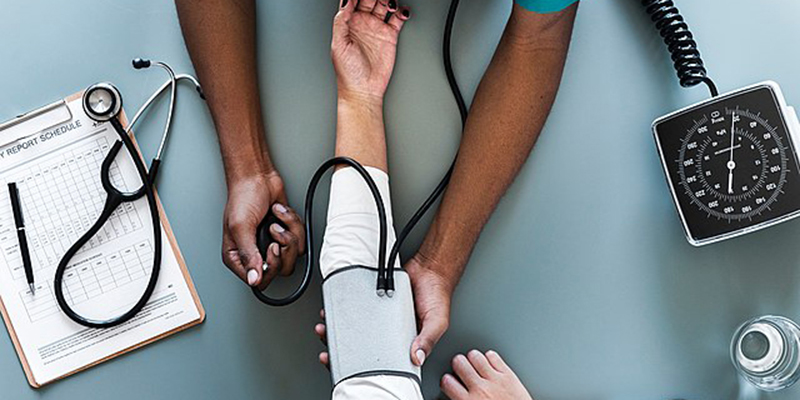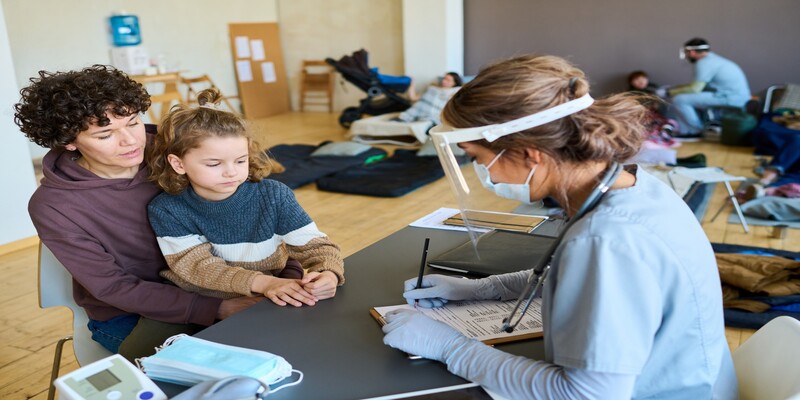Who Needs Regular Blood Pressure Monitoring?
Systematic sphygmomanometry is paramount for the preservation of optimal physiological homeostasis and the preclusion of deleterious pathologies. Recognizing the demographic cohorts necessitating incessant surveillance can facilitate preemptive health stratagems. This treatise elucidates the principal echelons requiring vigilant observation, providing invaluable blood pressure monitoring tips, managing blood pressure methodologies, and health counsel.

Individuals with a History of Hypertension
Persons diagnosed with hypertension, or elevated arterial tension, are predisposed to significant morbific risks such as cardiovascular pathology, cerebrovascular accidents, and nephrological impairments. Regular blood pressure monitoring aids in meticulously tracking and efficaciously managing their condition. Here are some blood pressure monitoring tips for individuals afflicted with hypertension:
- Gauge your blood pressure synchronously each daily cycle.
- Employ a reliable domiciliary sphygmomanometer.
- Annotate your readings in a compendium or digital repository.
- Regularly consult your physician to scrutinize your data.
Seniors and Older Adults
With senescence, blood vessels exhibit a diminution in elasticity, potentially exacerbating arterial pressure. Geriatrics and older adults must diligently manage blood pressure to prevent complications. Regular monitoring can detect incipient alterations, permitting timely intervention. To augment blood pressure health, seniors should:
- Maintain a regimen abundant in fructiferous, herbaceous produce and integral cereals.
- Partake in consistent physical exertion.
- Curtail sodium chloride ingestion.
- Eschew excessive ethanol consumption.
People with Chronic Kidney Disease
Chronic nephropathy can instigate or aggravate hypertension. Monitoring blood pressure is pivotal for those with CKD to forestall further renal degeneration and other associated health issues. Here are blood pressure monitoring tips for CKD patients:
- Regularly measure your arterial pressure and document the readings.
- Adhere to a nephroprotective diet.
- Administer prescribed pharmacotherapy as instructed.
Individuals with Cardiovascular Diseases
Individuals with cardiovascular diseases, such as myocardial pathology or a history of cerebrovascular incidents, must maintain rigorous blood pressure regulation. Regular monitoring aids in managing blood pressure and forestalling further complications. To optimize blood pressure health, these individuals should:
- Monitor arterial pressure at home and report significant deviations to their physician.
- Follow a cardioprotective diet low in lipids and cholesterol.
- Remain physically active with medically sanctioned exercises.
Pregnant Women
Gestation can induce alterations in arterial pressure, with some women developing conditions like preeclampsia. Regular blood pressure checks are indispensable for expectant mothers to safeguard their and their offspring's health. To maintain blood pressure health during gestation, consider these blood pressure monitoring tips:
- Attend all prenatal appointments for arterial pressure monitoring.
- Monitor blood pressure at home if counselled by your physician.
- Stay adequately hydrated and consume a balanced diet.
People with Diabetes
Properly managing blood pressure can avert complications such as cardiovascular disorders and cerebrovascular accidents. To sustain optimal blood pressure health, individuals with diabetes should:
- Regularly monitor arterial pressure and maintain a chronicle.
- Follow a diet conducive to glycemic control.
- Engage in consistent physical activity to maintain optimal bodily mass.
Overweight and Obese Individuals
Adiposity can impose additional hemodynamic strain on the cardiovascular system, leading to elevated arterial pressure. Overweight and obese individuals should assiduously monitor their blood pressure to preclude health complications. Effective managing blood pressure strategies include:
- Regular physical activity to facilitate adipose reduction.
- Consuming a balanced diet low in saturated fats and high in dietary fibre.
- Avoid saccharine beverages and hypercaloric comestibles.
People with Sedentary Lifestyles
Lack of physical activity can engender adiposity, impaired cardiovascular function, and elevated arterial tension. Regular blood pressure monitoring for those with sedentary habits is imperative. Here are some blood pressure monitoring tips for individuals with a sedentary lifestyle:
- Integrate intermittent, frequent bouts of physical exertion throughout the diurnal cycle.
- Wearable fitness apparatuses are utilized to surveil activity levels and arterial pressure.
- Engage in isometric exercises if you have a desk-bound occupation.
- Orchestrate regular intervals to stand, stretch, and mobilize.
Smokers and Tobacco Users
Smokers and tobacco users should be diligent in monitoring their blood pressure to mitigate these risks. Effective managing blood pressure strategies for smokers include:
- Procure professional assistance to cease tobacco use.
- Circumvent exposure to secondhand smoke.
- Regularly monitor arterial pressure, especially post-smoking cessation efforts.
People with high High-Stress Levels
Chronic stress can precipitate sustained hypertension, necessitating regular monitoring for those experiencing elevated stress. For optimal blood pressure health, individuals with high stress levels should:
- Practice mindfulness and meditative disciplines.

- Engage in consistent physical exertion.
- Develop helpful coping mechanisms, such as journaling or psychotherapy.
People on Certain Medications
Specific pharmacological agents, such as corticosteroids, oral contraceptives, and decongestants, can escalate blood pressure. Here are some blood pressure monitoring tips for people on such medications:
- Consult with your physician regarding the potential hypertensive effects of your medication.
- Monitor arterial pressure pre and post-medication administration.
- Report any significant alterations to your healthcare provider.
Athletes and Physically Active Individuals
While physical exertion generally enhances cardiovascular health, athletes and highly active individuals should also monitor their blood pressure. Intense physical activities can sometimes lead to transient spikes in arterial pressure. To manage blood pressure, athletes should:
- Monitor arterial pressure pre and post-exercise regimens.
- Ensure proper hydration and nutritional intake to support cardiovascular integrity.
- Avoid overtraining and allow for sufficient recuperation periods.
Individuals with Sleep Apnea
Sleep apnea patients should consistently monitor their blood pressure to manage associated risks. Here are some blood pressure monitoring tips for individuals with sleep apnea:
- Use a continuous positive airway pressure (CPAP) device as prescribed.
- Monitor arterial pressure upon awakening and before slumber.
- Maintain an optimal weight to alleviate symptoms.
People Living in High Altitudes
Residents of high-altitude areas should monitor their arterial pressure regularly to detect any adverse effects. For optimal blood pressure health, consider these blood pressure monitoring tips:
- Gradually acclimatize to high altitudes to minimize arterial pressure fluctuations.
- Maintain adequate hydration and limit sodium chloride intake.
- Monitor arterial pressure more frequently during the acclimatization phase.
Lifestyle Factors Affecting Blood Pressure
Various lifestyle factors can modulate arterial pressure levels. Even if generally healthy, being aware of these factors and regularly monitoring your blood pressure can contribute to overall blood pressure health. Consider these blood pressure monitoring tips:
- Diminish sodium intake to facilitate arterial pressure.
- Abstain from tobacco use and limit ethanol consumption.
- Engage in consistent physical activity.
Conclusion
Regular blood pressure monitoring is crucial for maintaining optimal health, particularly for those at heightened risk of hypertension and related conditions. By adhering to blood pressure monitoring tips and adopting stratagems for managing blood pressure, you can ensure better blood pressure health and preclude complications. Consult your healthcare provider for bespoke advice and monitor your blood pressure regularly to stay apprised of your health status.




